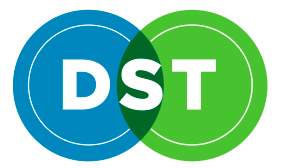Recently the project multilingualism has been released to the DST platform. The DST platform is now multilingual and allows retailers to receive product data in one of the supported languages (or multiple languages). Suppliers can post data in multiple languages and country combinations. Which countries and languages are supported?
DST currently supports four languages; the encoding for these languages is according to alpha – 2 – code ISO 639 – 1
https://en.wikipedia.org/wiki/List_of_ISO_639-1_codes
- Dutch
- German
- English
- French
DST supports all countries according to the encoding alpha – 2 – code ISO 3166 – 1
https://en.wikipedia.org/wiki/ISO_3166-1_alpha-2
Introduction DST.
What’s going to change?
- Suppliers can now provide product information in multiple language / country combinations.
- Retailers now can receive item information in their own country and language (one of the available!) combination.
- For retailers it is now possible to set up multiple country / language combinations. This must be requested at DST’s helpdesk.
- Data recipients who receive multiple languages and countries, will receive the same product (information) multiple times!
- POS and e-commerce vendors are advised to pay attention to the fact that it is now technically possible for their customers to receive product data from one item multiple times. By country / language combination, the item can be offered.
- In the platform DST every customer will have a default country / language combination configured. When data is retrieved by a customer in France, that customer receives only product information that have the fr / FR combination.
- In addition to Dutch code lists, DST will now also support international (English) codes; suppliers can choose which one to use. We aim here for the codes (not the values).
- International codes apply to all languages! Customers are offered the correct language value in addition to the code
- We support two versions of the element names, Dutch and international (English) element names in de API and CSV import.
Suppliers
Suppliers now can provide product information of one product multiple times, provided it always contains a unique combination of country and language code.

A product can be submitted multiple times, with a different language and country code, may contain different specifications. For example, a sales price of an item in the Netherlands (NL / NL) may be different from France (fr / FR). Platform DST sees these items as unique, which enables vendors to specify items differently.
For example:
- Descriptions in the correct language
- Prices per country different
- Availability (status) per country different
- Etc.
Advice: DST recommends to use only language / country combinations that are logical.
- If a country is multilingual, like Belgium, two combinations can be used: nl / BE and fr / BE • There is only one German combination: de / DE
- There is only one French combination: fr / FR
- There is only one Dutch combination nl / NL
Here is an example of a product delivered in multiple country / language combinations.



DST Codes (elements that require value from code list)
All elements (fields) that apply a code list, such as “brand”, “primary color”, “key word” etc. do not need to be translated. Dutch suppliers can continue to use the Dutch codes in all language and country combinations. The platform ensures that German values are offered and an international code in case of a German retailer. The latest multilingual code list can be downloaded from the platform or requested from the helpdesk.
Attention:
- Current suppliers do not need to modify codes, Dutch DST codes can be used for all countries and languages!
- If desired, international codes can be used, these are English.
- Data customers will get the values associated with their “language” and the codes belonging to their “country”

Customers /retailers
By default, customers / retailers are set in their “logical” language / country combination. A German customer: language = de and country = DE.
Customers can also set up multiple languages and language combinations if their business is done in multiple countries.
For example, a customer that has a webshop in the Netherlands and in Germany is most helped with the setting nl / NL and de / DE (not nl / NL and de / NL).

Data recipients receive via the DST API only product files that meet their preferred setting. A Belgian retailer with Dutch language only receives product files (rules) that have language / country = nl / BE
Further examples:
- A Belgian retailer who wishes to receive French and Dutch language products will need to configure: nl / BE and fr / BE
- A Dutch customer who also has a webshop in Germany needs to setup: nl / NL and de / DE
- A Dutch customer always receives Dutch codes and Dutch values via the API
New customers
DST has already accounts for almost all Dutch and Dutch Belgian bicycle retailers. If desired, DST can also support bicycle retailers from other countries, if so we would like to receive the correct contact information from these retailers.
Attention:
- The connection must have a specific purpose, a connection via POS / a webshop.
- We would like to receive the correct information
- Companyname
- Shop location – street, zipcode and city name
- E-mailaddress
- Phonenumber
DST validates these companies and then comes with an account and GLN available through the customer list.
